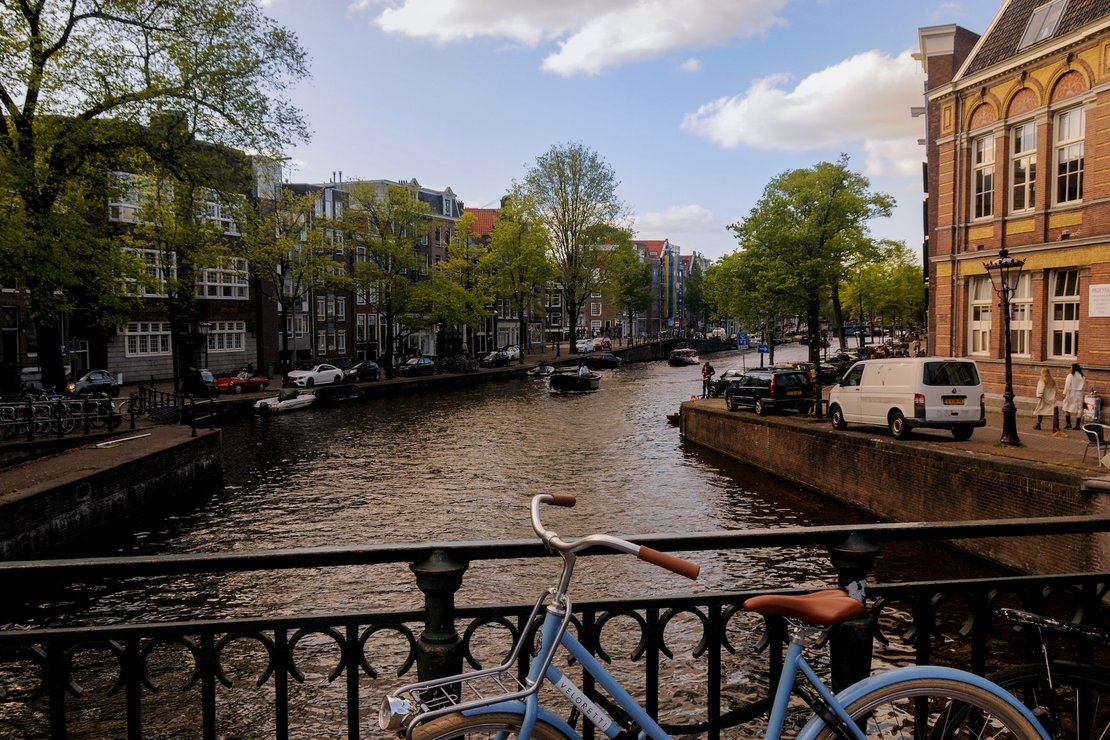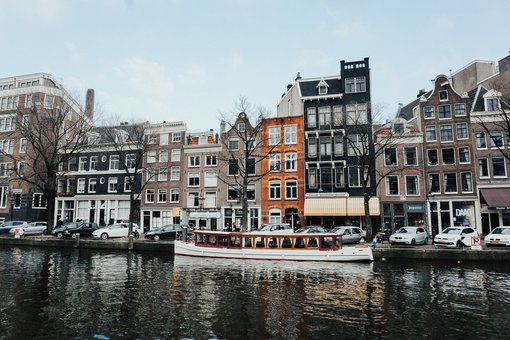Netherlands Higher Education System
Netherlands

The higher education system in the Netherlands is different compared to other European countries, and international students may need clarification until they get the hang of it.
There are two main higher education institution types in the Dutch higher education system, which are further subdivided into universities. The Dutch higher education system focuses mainly on teamwork and professional development, with the student as the center of learning and teaching.
Here is an overview of the Dutch higher education system:
What Are the Types of Higher Education in the Netherlands?
The higher education in the Netherlands is divided into two institution types, each consisting of different higher education institutions. Within the two main types of higher education, there are four higher education institutions in the Netherlands.
Higher education in the Netherlands classifies into two following categories:
1. Research-Oriented Education
The research-oriented higher education in the Netherlands is mainly taught in research universities, and they focus on traditional teaching methods by preparing students in several disciplines of higher education. Students study through a more theoretical approach compared to the universities of applied sciences, which offer a practical approach.
The higher education institutions that offer research-oriented education in the Netherlands include:
- Research Universities (Universiteiten). Research universities in the Netherlands offer students the opportunity to choose from a wide range of disciplines and degree programs depending on their chosen field of study.
- At the research universities, students can apply for 3-year Bachelor's degrees and 1 to 2-year Master’s degrees along with specialization programs mainly focused on technological and agricultural programs.
- University Colleges. Compared to research universities, university colleges also offer several courses. However, there are only a few disciplines available for majoring in. These disciplines include Arts, Humanities, Sciences, Engineering, and Social Sciences.
- University colleges are called ‘Honors Colleges’ and focus on maintaining a small but inclusive classroom. University colleges mainly offer bachelor's degree programs, and multiple English-taught courses are available.
- Institutes for International Education. There are various IE institutions located in the Netherlands, and they are typically part of a more prominent research university. More specifically, six IE institutions throughout the Netherlands focus on advanced training and courses in several programs. At the IE institutes in the Netherlands, you can choose to study all degree programs, from Bachelor’s degrees to PhDs.
2. Higher Professional Education
Higher professional education in the Netherlands comprises only the Universities of Applied Sciences or, as the Dutch call them: Hogescholen. Compared to research-oriented higher education, professional education focuses on a practical-learning teaching methodology, thus preparing students for their future careers.
What Do the Universities of Applied Sciences Include?
Applicants of the universities of applied sciences are usually decided on the profession they want to pursue, so their entire focus throughout their studies is mainly on that particular profession or field. The disciplines and teaching methodology at the Universities of Applied Sciences are almost identical throughout the country.
The Universities of Applied Sciences typically offer degree programs only in the following disciplines:
- Agriculture
- Arts
- Economics
- Education
- Healthcare
- Social and Community Work
- Technology
The Universities of Applied Sciences offer study programs at the bachelor and master levels, where you can get a BA (Bachelor of Arts), or a BSc (Bachelor of Science), which also allows you to enroll in a MA or MSc degree program.
What Degrees Do Higher Education Institutions Offer?
In the Dutch higher education system, international students can choose to graduate from the three-cycle system that includes bachelor’s, master’s, and doctoral degrees. Furthermore, the universities of applied sciences also offer associate degrees as a shorter cycle of higher education, usually before enrolling in a bachelor’s degree program.
Here are the types of degree programs in the Netherlands and the higher education institutions that offer them:
1. Associate Degree
Applicants interested in getting an associate degree can do so at any of the universities of applied sciences in the Netherlands. These degrees are short-cycle professional courses that award the title of an Associate degree. The Associate degree is a new degree program in the Dutch higher education system and is typically held at the beginning of a longer bachelor’s degree program. The associate degree is typically a 2-year long program and allows students to apply for a bachelor’s degree after graduation.
It is worth mentioning that multiple degree programs are available at the Associate level, which is found in the main disciplines listed below.
- Agriculture and the Natural Environment
- Behavior and Society
- Economics
- Engineering
- Healthcare
- Language and Culture
2. Bachelor’s Degrees
The Bachelor’s degree programs are available at all higher education institutions in the Netherlands, including research universities and universities of applied sciences. The bachelor’s degree duration varies depending on the discipline, study field, and the university.
A bachelor's degree at the university of applied sciences takes 4 years to complete, whereas a bachelor's degree at a research-oriented institution is typically a three-year-long degree. The disciplines of a bachelor's degree program differ according to the higher education institutions.
What is the difference between a bachelor’s degree at the Universities of Applied Sciences and at Research-oriented universities? See awarded titles below:
| Universities of Applied Sciences (Titles) | Research-oriented Universities (Titles) |
|---|---|
| Bachelor of (certain program), e.g., Bachelor of Economics | Bachelor of Science (BSc) |
| Bachelor of Science (BSc) | Bachelor of Arts (BA) |
| Bachelor of Arts (BA) | Bachelor of Laws (LLB) |
| Bachelor of Laws (LLB) |
3. Master’s Degrees
Similar to the bachelor's degree programs, you can also get a master’s degree at any of the higher education institutions in the Netherlands. Depending on the university and field of study, a master’s degree in the Dutch higher education system can last from 1 to 4 years. The awarded title is similar to the undergraduate degree titles such as:
- Master of (certain field of study): e.g., Master of Engineering.
- Master of Science (MSc).
- Master of Arts (MA).
- Master of Laws (LLM).
Research-oriented universities offer a few different types of master's degree programs, including academic master's, research master's, and teacher training master's programs.
4. Ph.D. Degrees
The doctoral degree programs in the Netherlands are considered more research-paid work than a study degree program. You can apply for a Ph.D. degree program only at research-oriented universities, considering it is a research degree program. The Dutch higher education system is ideal for Ph.D. candidates since they offer many research study fields, and candidates can get a paid employment contract from the university.
The Ph.D. degree is a minimum of four years degree since it requires a lot of work, and the majority of Ph.D. candidates in the Netherlands can not complete the research within six years.
5. Professional Doctorate in Engineering (PDEng)
Alongside the doctoral degrees available in the Netherlands, candidates can apply for a doctorate in engineering as a separate doctorate in one of the three universities of technology in the Netherlands. This doctorate program is a 2-year degree program, and graduates with an MSc graduate can apply.
What Grading System Does Dutch Higher Education Use
The grading system in the Netherlands can be confusing for international students; however, it gets easier once you start your full-time studies. The Dutch grading system is the same in secondary and higher education, with a small difference in the minimum passing grade.
Each course or module in the Netherlands is graded by a mid-term exam, also known as Tentamen by the Dutch. This exam is used to test students on the knowledge they have received at that point in their studies, based on the course. The exam can either be in oral or written form or however the university decides.
The Dutch grading system uses grades from 1 to 10, with 6 as a minimum passing grade. Some universities may also consider 5.5 as sufficient to pass the course. Although most institutions never grade students from 1 to 3, international students must remember that receiving such a low mark is still possible. Also, only a few students can get a 9 or a 10 in the Netherlands.
Here is the grading scale used by the Dutch higher education system:
| Grade | Definition |
|---|---|
| 10 | Outstanding |
| 9 | Very good |
| 8 | Good |
| 7 | Highly satisfactory |
| 6 | Satisfactory |
| 5 | Almost satisfactory |
| 4 | Unsatisfactory |
| 3 | Very unsatisfactory * |
| 2 | Poor * |
| 1 | Very Poor * |
What Types of Credits Are Used at Dutch Universities
The Dutch higher education system uses credits based on the European Credit Transfer and Accumulation System (ECTS). According to the educational system in the Netherlands, one hour of work translates to 28 credits, and one academic year is 60 credits. Aside from attending class, the 28 credits also include assignments and exam preparation.
The students must receive all 60 ECTS credits at the end of the year in order to be eligible for enrolling in the second year of studies, according to a binding recommendation or bindend studieadvies (BSA). If the students cannot meet the minimum credit requirements, they can not continue their studies, and in most cases, they are required to repeat the academic year.
The universities that require a minimum of 60 ECTS credits to pass the academic year usually issue a first-year certificate which allows students to continue their studies. However, some programs require only 30 or 45 ECTS credits to pass; thus, students do not necessarily receive the first-year certificate.


